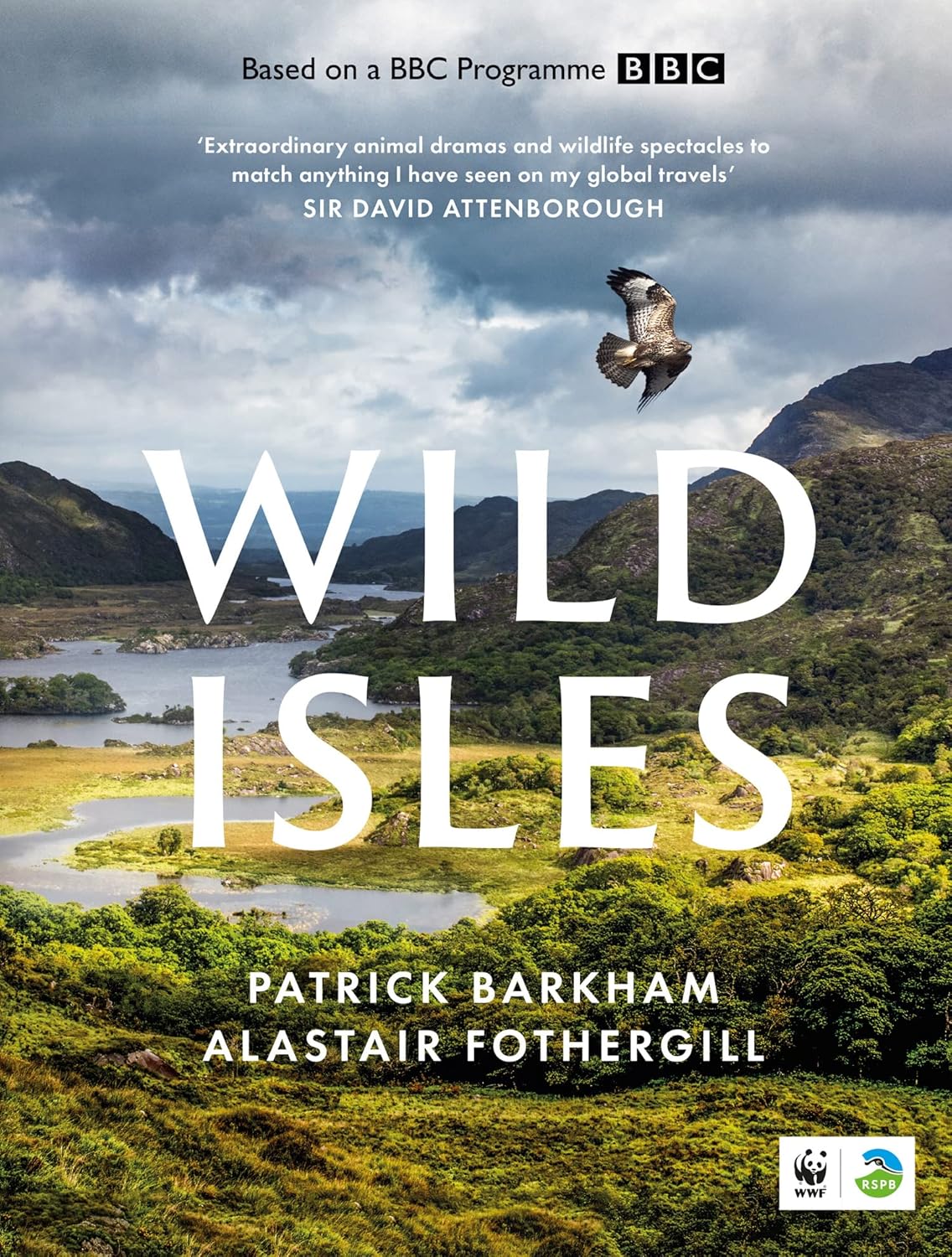
Wild Isles: The book of the BBC TV series presented by David Attenborough
FREE Shipping
Wild Isles: The book of the BBC TV series presented by David Attenborough
- Brand: Unbranded

Description
Britain is listed as the worst country in the G7 for wildlife and wild spaces lost due to human activity [Source: Natural History Museum] Presented by Sir David Attenborough, co-produced by The Open University, the RSPB and WWF, and filmed over three years, the series uses the very latest technology to capture dramatic new behaviour, from battling butterflies to hunting sea eagles and killer whales – revealing a previously unseen wild side of the British Isles.
The five-part series will have an introductory episode, explaining why Britain and Ireland are globally important for nature, while the remaining four episodes will celebrate our isles’ four key habitats – woodlands, grasslands, freshwater and marine. We are still one of least biodiverse countries in the world, making it important that we protect and restore the wildlife we have [Source: Biodiversity Intactness Study] This is shameful, but it doesn’t come from nowhere. In January, for the third year in a row, the UK government approved the “emergency” use of a banned insecticide on sugar beet; a single teaspoon of thiamethoxam is enough to kill 1.25 billion bees. Britain’s woodlands may be rare and complex, but a 2020 audit by the Wildlife Trusts reported that the environmental cost of the rail network HS2 had been vastly understated, particularly regarding ancient woodlands, which cannot simply be replaced. Singh, Anita (12 March 2023). "Wild Isles, BBC One, review: Attenborough's onscreen swansong is a Great British beauty". The Daily Telegraph . Retrieved 15 September 2023.a b "Attenborough's Wild Isles shows us our own 'spectacular' nature". BBC News. 2023-03-06 . Retrieved 2023-03-13. Diverse geology: Cumbria ; Lake District ; Dorset ; Scottish Highlands ; Skye ; Yorkshire Dales ; North Pennines ; Giant’s Causeway, Northern Ireland After the wonder and majesty, though, you know what’s coming. Attenborough usually doles out the bad news carefully, gradually, before ending each episode on more of a doomsday warning. The idea, I think, is that this makes it more palatable. Celebrate, then hit hard. He throws wonder after wonder at the screen, before gently informing us that, despite the preciousness of hay meadows, 97% of them have been lost in the past 60 years; that, despite the sheer beauty of design that allows a specific moth with a specific proboscis to extract pollen from a specific flower, 60% of the British Isles’ flying insects have vanished in the past 20 years. Sir David says: “In my long lifetime, I have travelled to almost every corner of our planet. I can assure you that in the British Isles, as well as astonishing scenery there are extraordinary animal dramas and wildlife spectacles to match anything I have seen on my global travels.”
The RSPB is protecting habitats, saving species and helping to end the nature and climate emergency. Nature is in crisis. Together we can save it. www.rspb.org.uk Our aim is to meet the Science Based Targets (SBTs), set in October 2021, to cut our GHG emissions to Net Zero and which are in line with staying below the threshold of 1.5 degrees of global warming. There are a number of reasons. Firstly, we have among the most varied geology on the planet. Our temperatures range from subtropical in the far south to arctic conditions on the top of the Cairngorms in Scotland. Our coastline is over 22,000 miles long and we benefit from the warming effect of the Gulf Stream. Our position on the globe is perfect for summer visitors from the south and winter visitors from the north. All these factors combine to create one of the richest natural histories in Europe. We have more ancient oak trees than the whole of Europe put together*, most of the world’s chalk streams flow in southern England and we are globally important for the sea birds. Britain and Ireland have some of the most diverse and beautiful landscapes on Earth. We have more ancient oak trees than the rest of Europe put together; sixty percent of the world’s chalk streams flow in southern England; our remaining flower meadows are a vital refuge for breeding birds and butterflies; and our coasts are home to internationally important numbers of seabirds. Yet our wildlife is increasingly fragmented and fragile - this series explains the challenges nature faces today, and what can be done to make our wild isles even wilder in the future. Tanya Steele, Chief Executive of WWF, says: “The UK is one of the most nature-depleted countries in the world – we need to change that. Our aim is that this stunning series featuring some of our best loved species will inspire people to take action to safeguard and restore nature for future generations.”
We’re also focussed on protecting the natural world around us. Currently, we’re aligning to a framework set out by the Taskforce for Nature-related Financial Disclosures (TNFD) which guides organisations in reporting on the risks from biodiversity loss and ecosystem degradation. As part of the project, the BBC is investigating its own operational impact on the environment and we have conducted an initial bio-diversity footprint study, in conjunction with a specialist team from the University of Oxford. We are custodians to more than 50% of the world’s common bluebells and we have 85% of the worlds chalk streams [Bluebells source: The Wildlife Trusts] [Chalk stream source: WWF]
- Fruugo ID: 258392218-563234582
- EAN: 764486781913
-
Sold by: Fruugo
